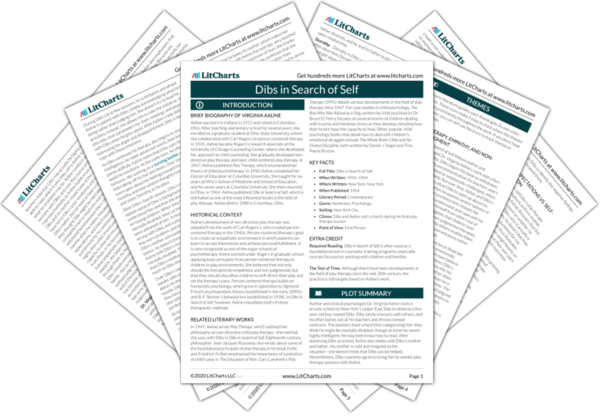This episode underscores the importance of Axline’s non-judgmental approach to Dibs’s therapy. Rather than punishing or judging Dibs for acting out the deaths of his parents, she instead provides a comforting arm around him and simply tries to understand his feelings. This allows Dibs to understand that he doesn’t actually hate his family; instead, he dislikes the way in which they punish him and simply wants them to understand the hurt that they have caused him.
